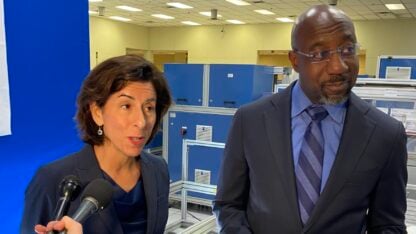Privacy concerns arise as state attorneys general seek access to out-of-state medical records

A Georgia law banning abortion roughly at six weeks of pregnancy was put into place earlier in the year. Georgia’s law also prohibits gender-affirming surgery and hormone replacement therapy for transgender minors.
Amid the enforcement of these new legal barriers, many people are traveling across state lines seeking medical care.
With the rise of patients seeking treatment in other states, the Biden Administration proposed a rule that would keep a patient’s out-of-state medical records private. This proposal has been met with opposition from Georgia Attorney General Chris Carr and 18 other state attorneys general. In June, they signed a letter to U.S. Secretary of Health and Human Services Xavier Becerra, saying the rule would prevent law enforcement from protecting women who become crime victims.
This explanation by Carr and his fellow attorneys general is being met with skepticism by some abortion and LGBTQ advocates.
On Monday’s edition of “Closer Look,” show host Rose Scott spoke with Allison Coffman, the executive director at Amplify Georgia Collaborative; Jen Slipakoff, a parent of a transgender child and a member of the Human Rights Campaign National Board of Governors; and Chanel Haley, a transgender woman and the director of Education & Community Engagement at Georgia Equality. They shared their privacy concerns for people seeking abortions and care for gender reassignment procedures.
“What letters like this are doing and what laws that are preventing access to health care are doing is making doctors in affirming states worried and scared about treating anyone who comes across state lines and really preventing them from doing their jobs properly,” explained Slipakoff.
The “Closer Look” team reached out to Carr’s office for a comment, but he did not respond.








